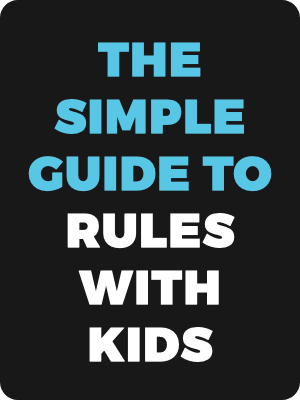Internet Safety for Teens: Practical Tips & Helpful Resources
Have you had “the talk” with your teen yet? Not the one about the birds and the bees. The one about the snaps and the tweets.
Teens today live a huge portion of their lives online. According to a study from Pew Research Center, 92% of teens report going online daily—including 24% who say they are online “almost constantly.”
That’s a lot of time spent on the good ole interwebs.
Just like you want your teen to stay safe in school or out with friends, you want to be sure they’re being smart about how they handle themselves on the internet. You may be asking yourself, “Is the Internet really that dangerous?” Well, yes, it can be. Just ask Dog here…

Jokes aside, online threats are real.
People can be anyone they want to be online, and do things that they might regret—including your teen.
It’s enough to make you want to ban your kid from social media altogether. But if you do that, chances are, you’ll be taking away a big part of their social life AND a learning opportunity.
The alternative? Have a strategy in place for Internet Safety.
In this article you’ll find:
• The 3-Biggest Threats to Teens Online
• A video & discussion questions to kickstart this conversation
• A poster you can print to reinforce these ideas
The goal is to help teens become a well rounded person who can coexist with technology—NOT be ruled by it.
At the end of the day, our kids are good people who we love and trust (well, most of the time). We need to empower our kids to make good decisions with technology, and help them understand that social media, like all privileges, is a responsibility. To make this process a bit easier for you, let’s tackle the three biggest threats to your teen online, and tips for how you can help them protect themselves.
Threat #1: Themselves
No one is immune from making mistakes on the Internet in life. Anyone is just a click or tap away from posting or uploading something that they might regret. The most dangerous part?
The Internet won’t forget it.
The online world is like a spider web. That’s why they call it the World Wide Web. Whatever is put into it gets stuck in there and can be preserved there for a while.
Being smart about what you do and say online is more than just a good idea. It’s a precaution for your future, too.
Did you hear the one about the Burger King employee who posted a picture of his feet in the bins of lettuce?
No, it’s not a joke. It’s a real story. But there is a punchline: Burger King traced the “anonymous” picture back to his phone, firing him and the entire crew he works with.
Ouch.
Consider how much drama is started when people post stupid stuff online that they would never say to your face.
Hiding behind a screen can make you feel invincible. But the things you say can come back to haunt you.
To help you protect your kid from themselves, share this general rule:
Before you post, ask…
“Would I be cool with grandma seeing this?”

Love you grandma!
If it passes the grandma filter of approval, then they’re good to go. If it doesn’t, then they probably need to rethink it.
Threat #2: Online Predators
Dogs aren’t the only ones who can pretend they’re someone else online. Anyone with a screen and Internet connection can make up whatever they want and post it on the Internet for the world to see.
If your kid is chatting online with someone, they need to be sure that they 100 percent know who they are. And they should never give out personal information.
If they’re going to buy something online, they must make sure it’s a safe, legitimate site, business, or organization. If they’re not sure, encourage them to check in with you first.
Just like the grandma rule, I’ve come up with a handy saying to help you remember this tenet of Internet safety:
“Avoid the temptation to give information.”
It’s no secret that there are some weird and crazy people out there. That doesn’t mean your kid should be scared away from using the Internet. They just need to be careful to protect themselves and their friends from online threats.
Threat #3: Unsavory Content
This one is not very popular to talk about, but it’s true. And we have to understand how to protect our teens from it. 12% of all websites are pornographic. Your teen doesn’t even need to be seeking this stuff out to see it.
The Kaiser Family Foundation did a survey of 1200 teens, and 70% of them said they had accidentally been exposed to porn online. Many said they had been exposed to porn before they were 14 years old.
That’s messed up. Being exposed to porn can cause serious psychological and relational harm.
“Wishful thinking is NOT a strategy.”
Consider protecting your teen by utilizing technology for good. I use and recommend a program called CIRCLE which filters content, sets time limits, and even gives devices a “bed time!”
Have This Talk Now
Chances are, your kid has already been on the Internet at some point today. They may even be online while you’re reading this. The time to talk to them about this is now.
If you’re feeling squeamish about having “the talk,” we have just the thing to break the ice.
1. Send your kid this funny video to kickstart the conversation
2. Follow up by asking them these THREE questions:
• Have you ever posted something online that you regretted?
• What should do before you give out any information?
• What do you think about us getting filtering software?
3. Review the golden rules of the interwebs:
• WOULD GRANDMA BE OKAY WITH IT?
• AVOID THE TEMPTATION TO GIVE INFORMATION
• WISHFUL THINKING IS NOT A STRATEGY
With these three straightforward boundaries, you can save your teen a lot of heartache and awkward questions in a future job interview.
T.H.I.N.K. Poster: Internet Safety Teens
Even after you go over these three points, you may need some help keeping your kid on their toes about Internet safety. Here’s a snazzy little poster you can download and print to help create awareness with the young people in your life.
 |




